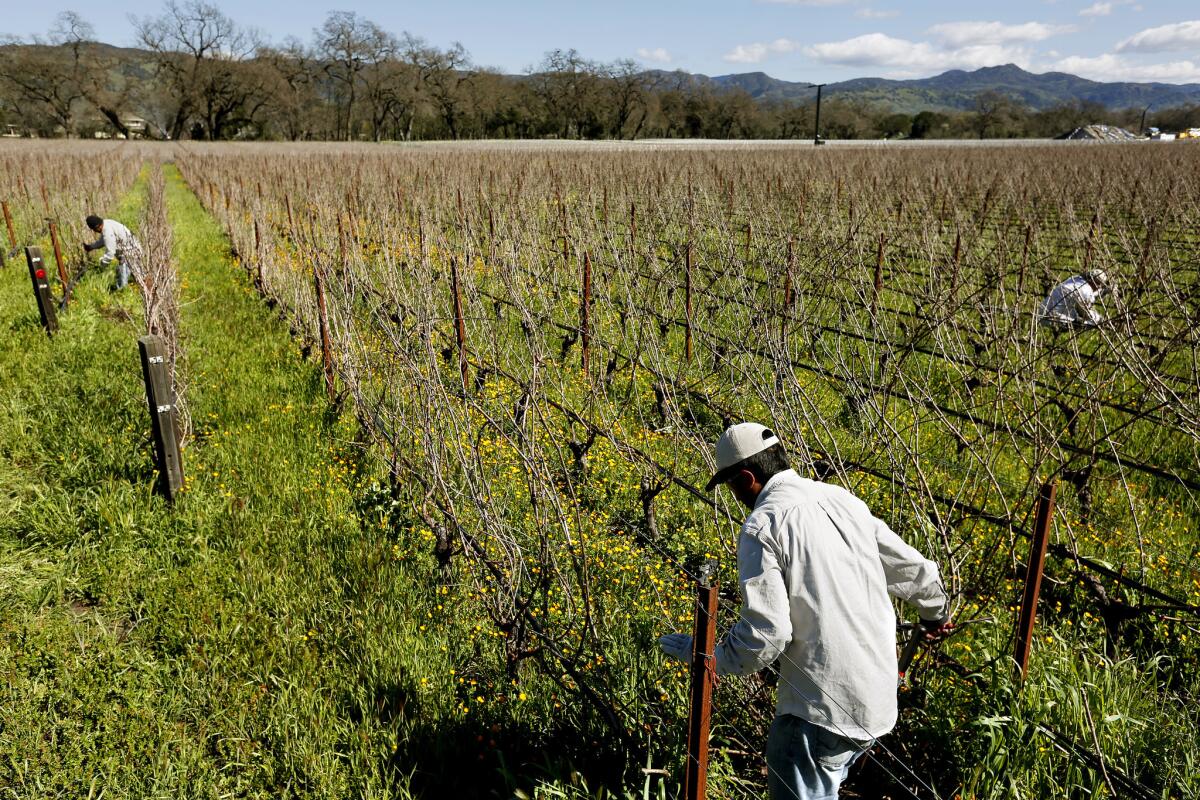Opinion: Farm work is back-breaking labor; it’s also highly skilled

- Share via
To the editor: The year Japanese Americans were sent to internment camps during World War II, a young friend of mine was hired to manage a strawberry farm in Lompoc owned by an internee. At the time I was 11, and I briefly worked on the farm picking strawberries. (“Wages rise on California farms. Americans still don’t want the job,” March 17)
The job was hard. We crawled up and down the strawberry rows, choosing berries of the correct ripeness and arranging them gently in small baskets. I lasted two weeks and earned 25 cents.
On the way home to Carpinteria, I lost my quarter. I cried about how hard itinerant farm work was, and my mother told me to get an education so I could avoid it.
Forever after, when I see pickers of any produce, I admire them and sympathize with them. They are truly skilled workers. How sad that an almost entirely immigrant workforce is the first to be discriminated against by the Republicans in Washington.
Phyllis Specht, Pasadena
..
To the editor: Economist Philip Martin is quoted as saying, “You don’t need a deep analysis to understand why farm work wouldn’t be attractive to young Americans.” This statement refers to the idea that because of the harsh weather conditions and labor-intensive work, young Americans will not take a job in the fields.
There’s another reason: The children of immigrant farm-working parents have been told that laboring in the fields is not seen as a sign of success in the United States. Their parents made sacrifices for them to achieve the American dream, meaning academic and professional success. These parents want to see their children become skilled workers in non-labor-intensive fields, not go through the pain and suffering they endure in the fields.
As these children want to please their parents, they do not dare go to work in the fields.
Miriam Perales, Berkeley
..
To the editor: If the Napa Valley vineyards going through a labor shortage were to pay their fieldworkers, say, $500 an hour, their needs would be met quickly.
It’s just a matter of coming up with the appropriate wage.
Alan Bell, Los Angeles
Follow the Opinion section on Twitter @latimesopinion and Facebook
More to Read
A cure for the common opinion
Get thought-provoking perspectives with our weekly newsletter.
You may occasionally receive promotional content from the Los Angeles Times.






